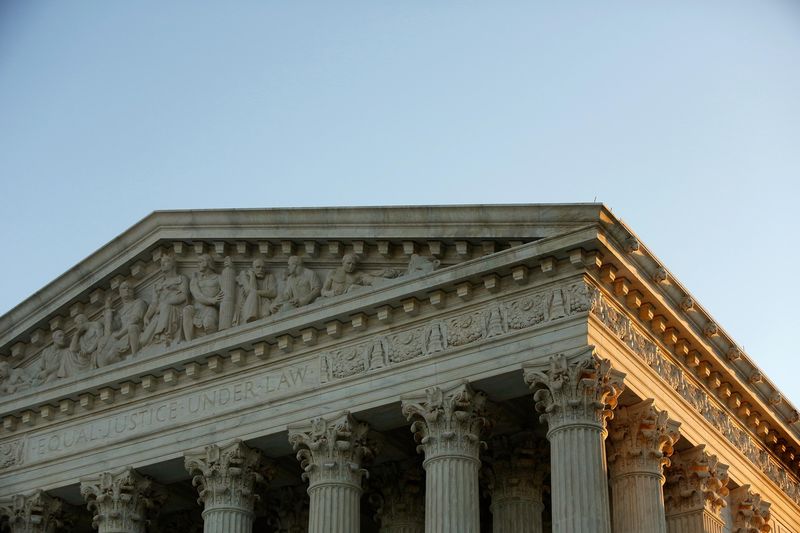By Joseph Ax
(Reuters) - After the U.S. Supreme Court ruled federal judges cannot curb partisan gerrymandering, reform advocates vowed to take their fight to state courts that retain the power to police the practice of drawing electoral lines for political advantage.
The first major test of that strategy begins on Monday in Raleigh, North Carolina, where a three-judge panel will hear a civil trial to decide whether the state's legislative districts - designed by Republican lawmakers to give their party an edge - violate the state constitution.
If the plaintiffs succeed in overturning the state's maps, it would likely boost Democrats' chances of capturing the Republican-controlled state legislature in 2020 - and with it, the opportunity to draw new congressional districts in 2021 after the U.S. census is completed.
A court victory for the plaintiffs also could bolster parallel legal efforts in other states, experts said.
"It's something that people around the country are going to be watching," said Michael Li, a lawyer at the Brennan Center for Justice at New York University Law School who studies redistricting.
Unlike the U.S. Constitution, the North Carolina version includes a provision guaranteeing "free" elections. The lawsuit filed in state Superior Court by Common Cause North Carolina, a good-government advocacy group, and the state Democratic Party claims the current legislative map runs afoul of that principle.
In a similar case last year, the Pennsylvania state Supreme Court threw out Republican-drawn congressional maps, finding that partisan gerrymandering violated the state constitution's free elections clause. Under new maps, Democrats captured half of the state's 18 seats in the U.S. House of Representatives, compared with only five in 2016.
While state court rulings are not binding in other states, judges will often consider similar cases in crafting their decisions, Li said.
The North Carolina case is expected eventually to reach the state's Supreme Court. The court has six Democratic justices and only one Republican, increasing the odds that a gerrymandering challenge will succeed, according to legal experts.
EXTREME GERRYMANDERING
Every decade, the boundaries of U.S. House and state legislative districts are redrawn to reflect population changes in census data; in most states, the party in power controls redistricting.
Typically, gerrymandering concentrates one party's voters in a small number of districts while diluting them everywhere else, a practice known as "packing and cracking."
The North Carolina lawsuit involves only the district lines for the state's legislature. Common Cause challenged North Carolina's U.S. congressional districts in a separate federal case that eventually led to the U.S. Supreme Court's 5-4 ruling two weeks ago.
But a ruling from the state Supreme Court that state legislative districts cannot be gerrymandered for partisan gain under the North Carolina constitution would likely apply equally to U.S. congressional lines, which are also drawn by state lawmakers.
The current congressional map is considered by experts one of the most extreme examples of gerrymandering in the country. Republicans won nine of the state's 13 seats in 2018 and Democrats won three, with one race's results thrown out due to fraud allegations, despite the state's even partisan split.
Republicans also won majorities in both the state House of Representatives and the state Senate in 2018, even though they lost the statewide popular vote.
Pat Ryan, a spokesman for the state Senate's top Republican, Phil Berger, said comparing the two maps is misleading. Unlike congressional districts, the state legislative lines are governed by exacting constitutional requirements, such as keeping counties whole, he said.
Those regulations, coupled with Democratic voters' tendency to cluster in urban areas, have far more of an impact than any modest usage of partisan data, according to Republicans.
"We're subject to one of, if not the, strictest set of rules governing how those maps can be drawn," Ryan said.
Bob Phillips, the executive director of Common Cause North Carolina, said the skewed lines threaten the basic principles of democracy.
"It doesn't provide everyone with an equal vote," he said. "It really is an inability of citizens to hold their elected officials accountable."
The trial is expected to last up to two weeks. The judges are likely to issue their verdict weeks or months after the proceeding ends, which will almost certainly be followed by an appeal to the state Supreme Court from the losing side.
